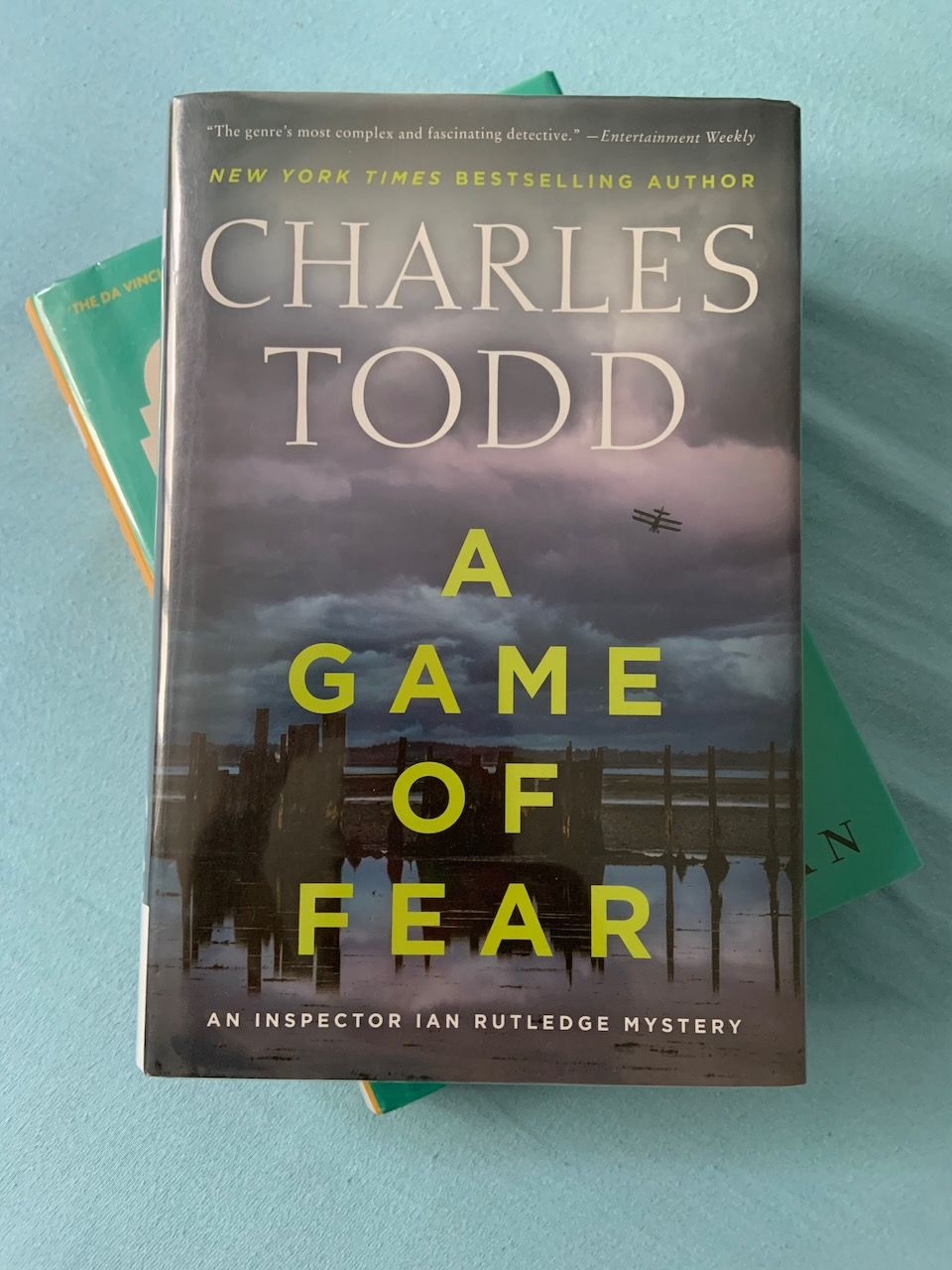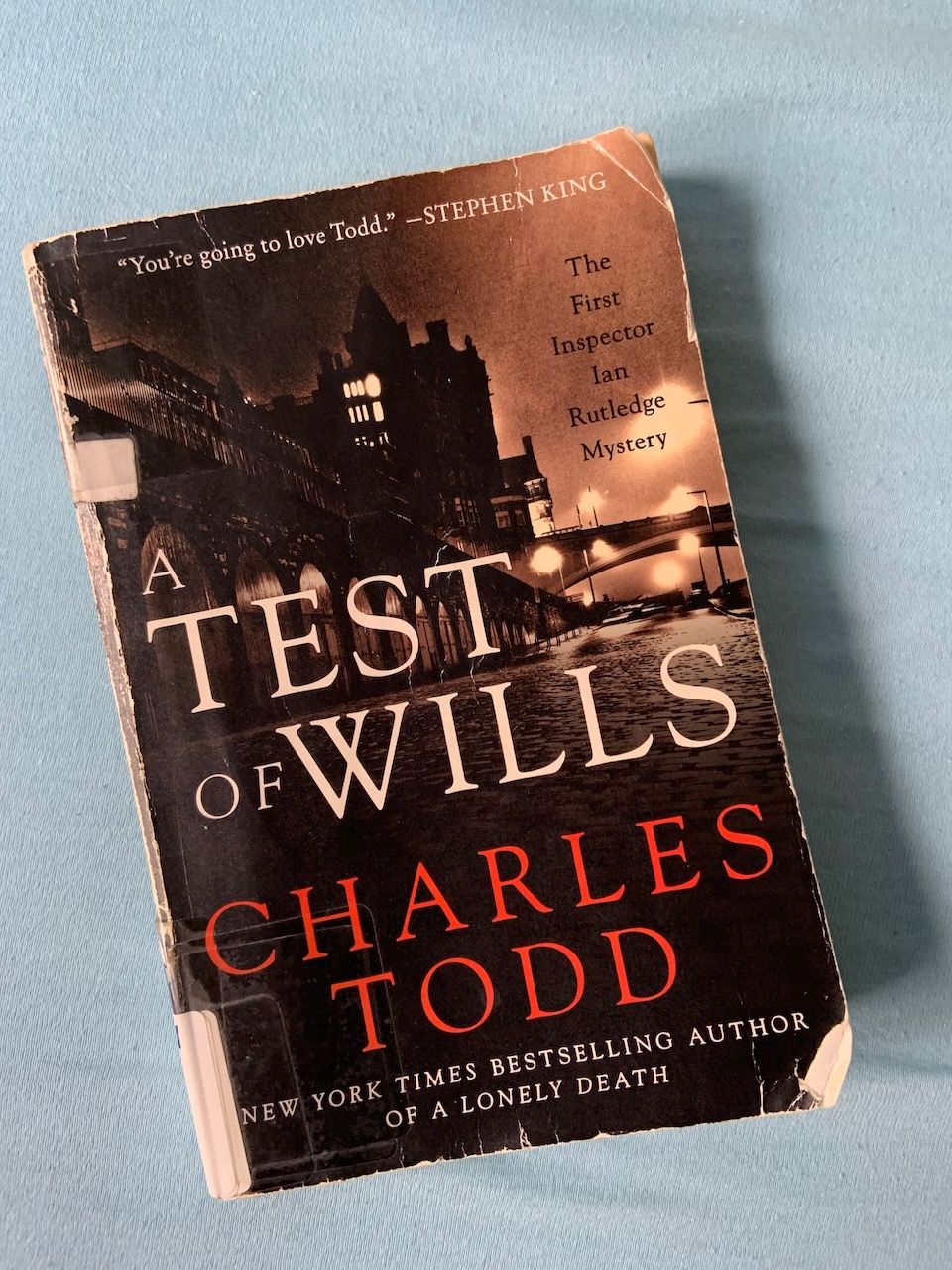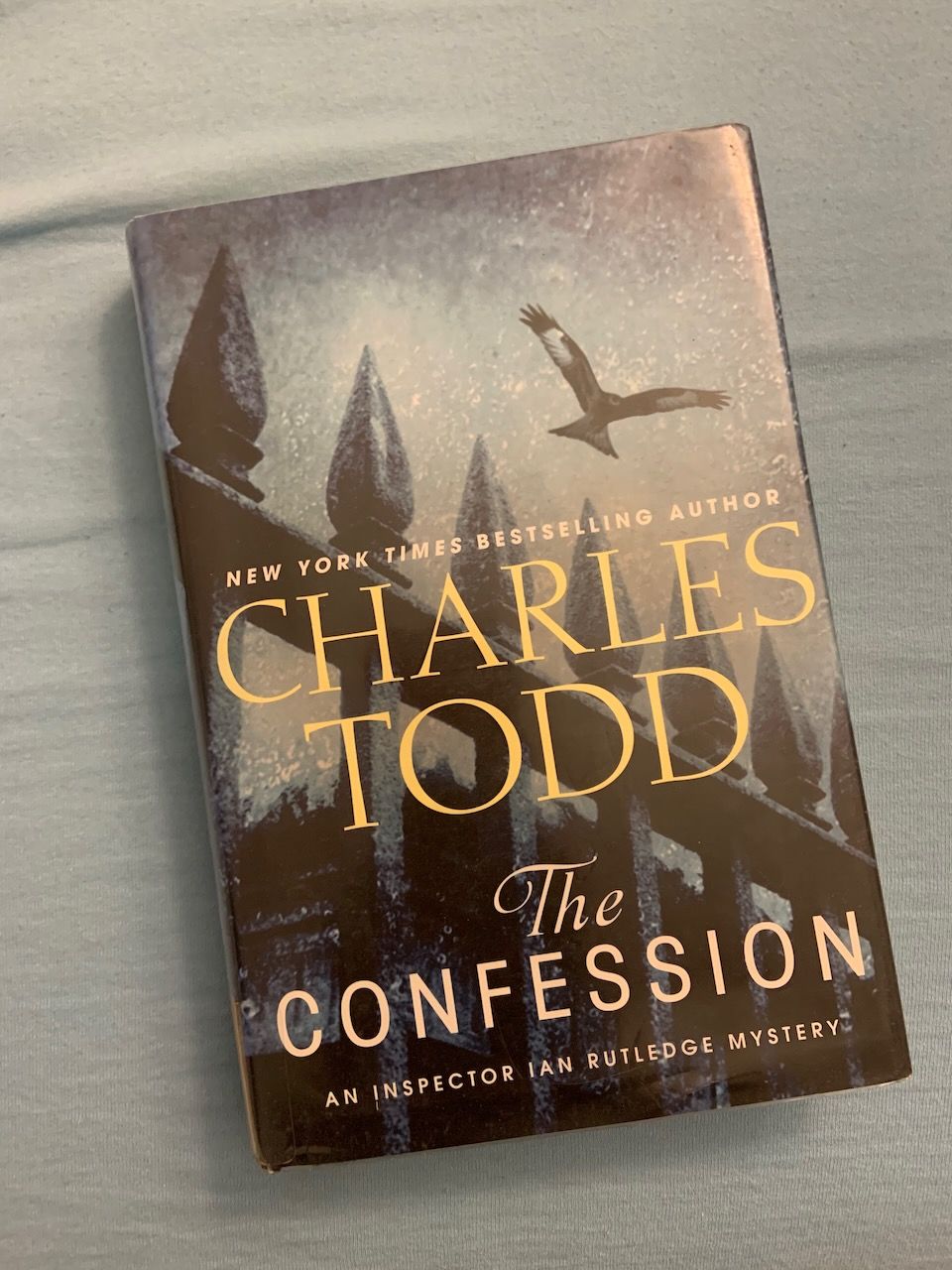books you may love: Ian Rutledge series
When books teach us more about courageous living than life itself can ...




Back in August, I picked up a book titled A Game of Fear by Charles Todd. As I wrote back then, it turned out to be Book 24 in a series featuring Inspector Ian Rutledge of the Scotland Yard, a shell-shocked WWI veteran who lives with a voice inside his head, that of a fellow soldier he killed in the war. Rutledge is compelled to hide this affliction in order the avoid the social stigma that would have ensued otherwise.
Last month, I sought out the first book in the series, A Test of Wills. It took me a while to get to the book but when I did, I tore through it in a matter of days. We get to see Inspector Rutledge on his first case after the war, and his naivete in the face of a superior who is hell-bent on making his life miserable is endearing, to say the least.
I ran to the local library after that, desperate to get my hands on as many books in the series as I could. There was an entire row full of these books as well as books in the Bess Crawford series, also by Charles Todd. Eventually sense prevailed and I carried as many as I reasonably could without having to hunch over, pulled by the weight of all these stories that I wanted to read.
I've just finished reading The Confession, which turns out to be book #14 in the series. As much as I love reading series in order, reading out of order hardly diminished the delight of delving into these books. Rutledge has his own personal story unwinding in the background, so sometimes I have to make assumptions about a particular character referenced in passing. But, to me, that takes away nothing from the case itself and eventually when I read the preceding books, I know the missing pieces will fall into place.
But what I love most about these books is the voice of Hamish that lives inside Rutledge's head. Hamish keeps offering his advice and words of caution to Rutledge, sometimes taunting him, but most often acting as a friend of sorts. For some reason, it was in this book, the third I read, that I started to find the voice of Hamish very endearing.
In the first book I read, I was simply blown away by the concept of Hamish and how beautifully Todd has captured it. The time period in which the book was written (1980s) and the time period in which the stories are set (post-WWI), both were not conducive to the those struggling with post-traumatic stress disorder issues.
By the time I got to the third book, the voice of Hamish had grown upon me, and I now look forward to his thoughts and opinions as much as I enjoy reading Rutledge's analysis of the cases.
I am not tearing through the series at the exclusion of everything else, because I want to make it last longer. Also coming back to an Ian Rutledge book after reading something else is sort of like coming back to a cozy home from the rain outside, walking back to a warm hearth and a soothing mug of tea, and the certainty that in these pages, great courage will be displayed, difficulties will be surmounted, and justice will be served, but most importantly, I will be able to understand and appreciate people and life in a way I'm often unable to in real life.
Here is an excerpt from The Confession, explaining how Hamish came to take up residence in a corner of Rutledge's mind.
There was a derisive chuckle.
Hamish wasn't there. Rutledge had told himself that a thousand times, but it was no comfort. Hamish was dead and buried in France, and that was no comfort either.
The doctors had called it shell shock, this hearing of a voice that was so real Rutledge answered it in his head—or sometimes to his absolute horror, aloud. Corporal Hamish MacLeod had fought beside Rutledge almost from the start, a young Scot, but with a grasp of military tactics well beyond his years. A bond had grown between the two of them, officer and man, because each knew he could trust the other implicitly, and both knew that the care of the men under them was paramount. Watching the maimed and the dying through two years of heavy fighting had taught them that. Green men, facing battle for the first time, had only a slim chance of survival. If their officers could double those odds, it counted for much.
And then on the Somme, in those first bloody weeks of fighting, Hamish MacLeod had put Rutledge in an untenable position: he had refused an order outright, in front of his men. His reasons were sound—he knew going over the top one more time after a well-concealed German machine-gun nest was insane, that more men would die needlessly. And yet HQ had ordered that it be taken out at any cost before the next assault, and Rutledge had had no alternative but to try, for the sake of the hundreds of British soldiers who would be crossing No Man's Land in only a matter of hours. The good of the few—or the good of the many. That was the choice. Hamish had chosen his bleeding and exhausted company.
No amount of argument could sway him. Even when, as an example to other weary and dispirited men, Rutledge had to threaten his corporal with a firing squad, it had not changed his mind. And Rutledge had had to carry out that threat, against his better judgement and against the weight of his own guilt. He had had to deliver the coup de grâce to the dying man, taking out his pistol and firing it point-blank, and watching the anguished eyes go dull.
He hadn't wanted this, he hadn't wanted Hamish MacLeod on his soul. Even his own mind had refused to accept what he had done. The burden of guilt had been insupportable. And in the way of damaged minds, his had created a living Hamish, proof that the young corporal hadn't died. Keeping him alive through two more years of grinding stalemate and death, bringing him home in the only way he could.
Military necessity had been paramount. Rutledge had almost hated Hamish for breaking, for forcing his own hand. But close as he was to breaking himself, he had known that the young corporal was right. Still, Duty was all. Compassion had no place on a battlefield. Obeying orders was the paramount rule.
There had been times when Rutledge himself had wanted to die, to shut out the voice hammering at him. And he couldn't, because when he himself died, Hamish would finally be dead as well. He'd led a charmed life in the trenches those last two years of the war — his men had commented on that again and again. But Rutledge had understood it for what it was. God had not wanted him. A murderer ...
~ An excerpt from The Confession by Charles Todd
Feature Image Attribution: Photo by Clay Banks on Unsplash